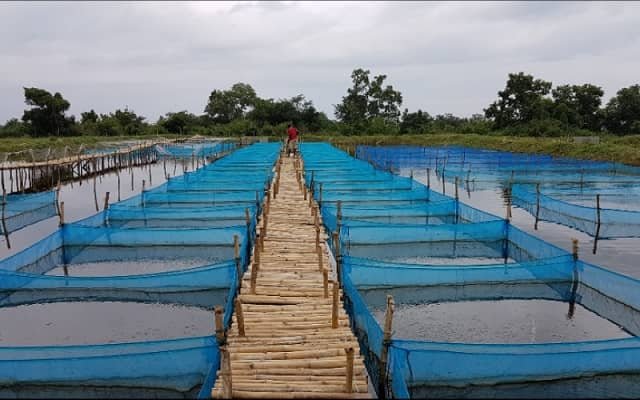Miriam van Straten (EFFAB), Hervé Chavanne (Nofima)
In the FISHBOOST project, one work package is dedicated to investigating existing perceptions of aquaculture production. The work consisted of two parts, one part focussed on the perceptions of representative organisations within and external to the aquaculture sector, the other part focussed on the perceptions of (individual) aquaculture producers in specific. These perceptions are important to us, they give us an idea of the context in which the FISHBOOST research results will land and of the efforts we will have to make to get these results successfully implemented in the aquaculture sector of today.
Interviews with representative organisations
A limited number of in-depth interviews were conducted with amongst others the Global Aquaculture Alliance, the Eurogroup for Animals, the International Union for Conservation of Nature and the European Aquaculture Technology and Innovation Platform. During the interviews, we discussed the European aquaculture sector in general, and specific questions on the (impact of) aquaculture production and on aquaculture species and selective breeding.
The image that emerged from the interviews is that of a sector that is seen as highly technically advanced and innovative, producing healthy and qualitatively good food products. But at the same time of a sector that is still in the process of discovering and realising its growth potential, while struggling to get the necessary capital to invest in a sustainable future. The ability to answer to the consumer-sensitive market by (for example) increasing product quality, and by increasing sustainability and the level of animal welfare is seen as an opportunity.
While most organisations have a good sense of what aquaculture production is, understanding what selective breeding in aquaculture really entails and what the benefits are, seems a bridge to far for most organisations. This supports the efforts of the FISHBOOST consortium to communicate to a wider audience and explain their work and the possible impacts.
Electronic survey amongst aquaculture producers
In the second part of the work, electronic surveys were used to identify the perceptions of aquaculture producers on selective breeding, breeding technologies, the importance of different production traits and characteristics and on the factors that hold them back from engaging in selective breeding.
Producers and processors from 13 European countries responded, from the UK to Poland and from Norway to Greece, representing 47 organisations. 42% of the respondents already use selective breeding. Nevertheless, it appears from the results that the basic concepts of selective breeding are in general well understood by producers. Looking at breeding technologies, genomic selection is seen as an important technique: today mostly by salmonid producers, and in the near future by most producers. Productivity traits such as growth rate, protein retention and feed efficiency, are perceived as most important for breeding goals, followed by disease resistance and fish appearance traits.
Stay Always Informed
Join our communities to instantly receive the most important news, reports, and analysis from the aquaculture industry.
Looking at factors that stimulate or hamper producers to engage in selective breeding practices, one factor stands out: the ‘human’ factor. Human resources and knowledge transfer are named as factors that need attention to implement breeding programmes in the aquaculture sector. New knowledge often finds its way to the fish farms through people who visit the farms. This highlights the importance of targeted dissemination of the FISHBOOST results, but also of the availability of highly qualified and trained staff in the breeding companies and all along the food production chain.
Conclusion
Although the number of interviews and surveys was limited, we can paint a picture of the perceptions that exist on aquaculture production. The interviews and surveys combined shed light on how aquaculture breeding is perceived from outside and within the sector and help the FISHBOOST researchers to fine-tune their work and to help disseminating the FISHBOOST results.
Contact person: anna.sonesson@nofima.no
Project FISHBOOST: http://www.fishboost.eu
Editor at the digital magazine AquaHoy. He holds a degree in Aquaculture Biology from the National University of Santa (UNS) and a Master’s degree in Science and Innovation Management from the Polytechnic University of Valencia, with postgraduate diplomas in Business Innovation and Innovation Management. He possesses extensive experience in the aquaculture and fisheries sector, having led the Fisheries Innovation Unit of the National Program for Innovation in Fisheries and Aquaculture (PNIPA). He has served as a senior consultant in technology watch, an innovation project formulator and advisor, and a lecturer at UNS. He is a member of the Peruvian College of Biologists and was recognized by the World Aquaculture Society (WAS) in 2016 for his contribution to aquaculture.






